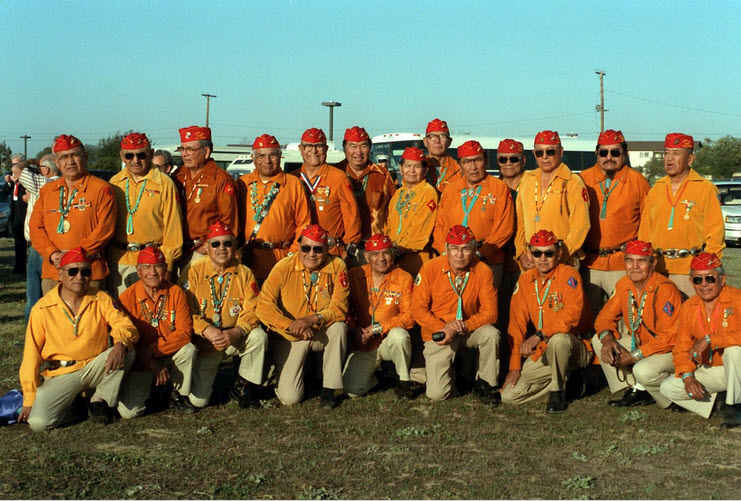

Indian Scouts, Companies, and Code Talkers |
From the earliest years of United States history, American Indians have served in the U.S. Armed Forces, participating in every major military conflict, including both sides of the American Civil War. They have filled unique roles as U.S. Army Indian scouts, as well as U.S. Army and Marine Corps Code Talkers in both World Wars. Relevant service and pension records, along with related correspondence, reports, and other documents, can be found at the National Archives.
Army Indian Scouts
In 1866, one year after the Civil War ended, Congress authorized the President to enlist a limited number of American Indians as U.S. Army scouts. Army commanders also hired American Indians as civilian scouts, often for short expeditions lasting only a few weeks. Whether enlisted or hired, hundreds of Indian scouts served from the 1860s until 1947, when the last one retired. Contact the Oklahoma Historical Society to ask for information related records about Indian scouts who served in Oklahoma.
Army Indian Companies
In the 1890s, some American Indians served in short–lived Indian companies attached to Regular Army infantry and cavalry regiments.
The members of these companies often acted as scouts for their regiments, operating separately from the enlisted and hired Indian
scouts.
Code Talkers
During World Wars I and II, American Indians joined the U.S. Armed Forces, where many used their traditional languages to encrypt military communications.
The first Code Talkers were Choctaw soldiers serving overseas with the Army during World War I, playing an important role in several Allied victories.
During World War II, the Army recruited even more Code Talkers. Individuals from Comanche, Choctaw, Hopi, Cherokee, and other tribes served with the Army, while the U.S. Marine Corps established a formal Code Talking School for the Navajo tribe.
| Indian Code Talkers |
Some documents may contain personal information and as such they might be restricted under Freedom of Information Act (FOIA) Exemption (b)(6). These records must be screened by National Archives staff before being released to researchers. Personal information may be redacted. Learn more about FOIA.
